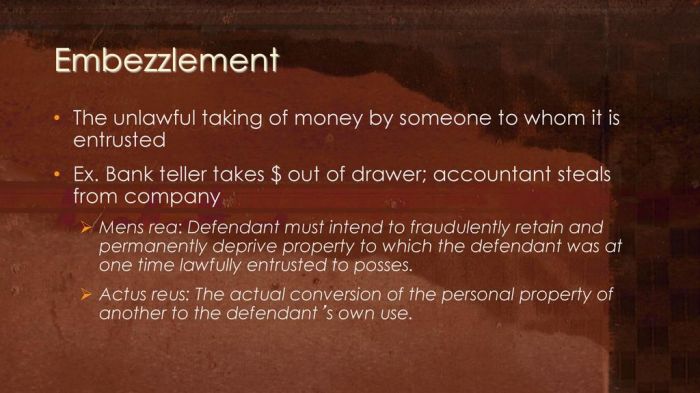
What is conversion in law? It’s a legal concept that involves the wrongful interference with someone’s property, essentially depriving them of their rightful possession. This concept has deep roots in history, dating back to the early days of common law. Imagine a scenario where someone takes your car without your permission and drives it around town, leaving it in a different location. This could be considered conversion, as the person has interfered with your ownership rights and deprived you of your car’s use. Conversion can encompass a range of situations, from simple theft to more complex scenarios involving the misuse or destruction of property. This guide delves into the intricacies of conversion, exploring its elements, types, defenses, remedies, and its presence in various legal systems.
Conversion in law is a fascinating area of legal study, offering a glimpse into the complexities of property rights and the legal remedies available when those rights are violated. By understanding the core elements of conversion, its different types, and the available defenses, individuals can better protect their property interests and navigate potential legal disputes.
Introduction to Conversion in Law

Conversion is a legal tort that occurs when a person intentionally interferes with the property of another, depriving the rightful owner of their possession. It is a civil wrong, meaning that it is a violation of someone’s rights that can result in a lawsuit.
The core elements of conversion are:
* Intentional act: The defendant must have acted intentionally, meaning they must have acted with knowledge of the property’s rightful owner and with the intent to interfere with that ownership.
* Interference with property: The defendant’s act must have interfered with the property of another. This interference can take many forms, such as taking, destroying, or selling the property.
* Deprivation of possession: The interference must have deprived the rightful owner of possession of their property. This means that the owner must have been unable to access or use their property.
Historical Origins and Evolution of Conversion
The concept of conversion has its roots in the common law of England. In early English law, conversion was a crime, and the punishment for conversion was often imprisonment or death. Over time, the concept of conversion evolved into a civil wrong.
The development of conversion as a civil wrong can be traced back to the 13th century. During this time, the English courts began to recognize the right of property owners to sue for damages if their property was interfered with. This right was based on the idea that property ownership is a fundamental right, and that any interference with that right should be compensated.
Real-World Scenarios of Conversion
Conversion can occur in a variety of situations. Here are some examples:
* Theft: If someone steals your car, they have committed conversion.
* Destruction of property: If someone destroys your property, they have committed conversion.
* Unauthorized use of property: If someone uses your property without your permission, they have committed conversion.
* Sale of property: If someone sells your property without your permission, they have committed conversion.
* Misappropriation of funds: If someone takes money that you entrusted to them and uses it for their own purposes, they have committed conversion.
Elements of Conversion

To establish conversion, a plaintiff must prove several essential elements. These elements ensure that the defendant’s actions constitute a wrongful interference with the plaintiff’s property rights.
Interference with Rightful Possession, What is conversion in law
The core element of conversion is the defendant’s interference with the plaintiff’s rightful possession of goods. This interference doesn’t necessarily require physical taking. It can include any act that:
- Deprives the owner of possession
- Exercises dominion over the goods inconsistent with the owner’s rights
- Deals with the goods in a manner that denies the owner’s title
For instance, if someone takes your car without your permission, that is a clear case of conversion. However, even if someone merely uses your car without your knowledge or consent, it can still be considered conversion, depending on the circumstances.
Intention or Knowledge
While conversion is a tort of strict liability, the defendant must have some degree of intent or knowledge regarding the interference. The defendant doesn’t need to intend to convert the property, but they must intend to do the act that interferes with the plaintiff’s possession. This is often described as “intention to exercise dominion over the goods.”
For example, if someone mistakenly takes your briefcase thinking it’s theirs, they may not have intended to convert your property. However, their act of taking the briefcase and exercising dominion over it, even mistakenly, can still constitute conversion.
Deprivation of Possession
Conversion requires the defendant to deprive the rightful owner of possession of the goods. This deprivation can be temporary or permanent. The key is that the owner’s possession is significantly interfered with, preventing them from exercising their rights over the property.
For instance, if someone borrows your car without your permission but returns it the next day, it may not be considered conversion. However, if they refuse to return the car or damage it beyond repair, that would likely constitute conversion.
Types of Conversion: What Is Conversion In Law

Conversion, as a tort, can manifest in various ways, each with distinct characteristics and legal implications. Understanding these different types of conversion is crucial for accurately assessing liability and determining appropriate remedies. This section explores three primary types of conversion: wrongful taking, wrongful detention, and wrongful disposal.
Wrongful Taking
Wrongful taking occurs when a person takes possession of another’s property without their consent. This act constitutes conversion because it deprives the rightful owner of their property and interferes with their right to control it.
- Example: If someone steals a car, they have committed conversion through wrongful taking. The thief has taken possession of the car without the owner’s consent, depriving the owner of their property and control.
- Example: A person who finds a lost wallet containing money and identification is obligated to make reasonable efforts to return the wallet to its owner. If the finder keeps the wallet and its contents for personal use, they have committed conversion through wrongful taking.
Wrongful taking is a clear-cut instance of conversion, and the remedies available to the owner are generally more extensive, including potential criminal charges.
Wrongful Detention
Wrongful detention occurs when a person holds another’s property after the rightful owner has demanded its return. This type of conversion involves an intentional refusal to relinquish possession of the property, even though the owner has a valid claim to it.
- Example: A mechanic who refuses to return a car to its owner until they pay an exorbitant repair bill has committed conversion through wrongful detention. The owner has demanded the return of their car, but the mechanic is holding it unlawfully.
- Example: A landlord who refuses to return a tenant’s security deposit after the tenant has vacated the premises and fulfilled their obligations under the lease agreement has committed conversion through wrongful detention.
The owner in a wrongful detention scenario can seek legal remedies to recover their property and potentially recover damages for any losses incurred due to the detention.
Wrongful Disposal
Wrongful disposal occurs when a person disposes of another’s property without their consent. This includes situations where the property is sold, destroyed, or otherwise disposed of in a manner that deprives the owner of their property rights.
- Example: A pawnbroker who sells a stolen watch without verifying the owner’s title has committed conversion through wrongful disposal. The pawnbroker has disposed of the watch without the owner’s consent, and the owner has lost their property.
- Example: A construction company that accidentally demolishes a neighboring building during a demolition project has committed conversion through wrongful disposal. Even though the demolition was unintentional, the company has disposed of the building without the owner’s consent.
Wrongful disposal is often considered a more severe form of conversion, as it permanently deprives the owner of their property. Remedies in such cases may include financial compensation for the value of the lost property and potential punitive damages to deter future wrongdoing.
Ultimate Conclusion
Conversion in law is a multifaceted legal concept with far-reaching implications. Understanding the elements of conversion, its various types, and the available defenses is crucial for protecting property rights and navigating legal disputes. Whether it’s a simple case of wrongful taking or a more complex scenario involving the misuse or destruction of property, the principles of conversion provide a framework for seeking justice and obtaining appropriate remedies.
Commonly Asked Questions
What are some examples of conversion in real life?
Examples include stealing a car, selling someone else’s belongings without their permission, or using someone’s credit card without their consent.
Can I sue someone for conversion if they accidentally damaged my property?
No, conversion generally requires intentional interference with property. Accidental damage might be considered negligence, but not conversion.
What is the difference between conversion and trespass to chattels?
Trespass to chattels involves a temporary interference with property, while conversion involves a more permanent deprivation of possession.
What are the potential consequences of being found liable for conversion?
Consequences can include paying damages to the owner, returning the property, or even facing criminal charges in some cases.




